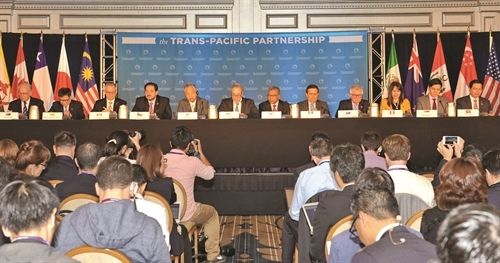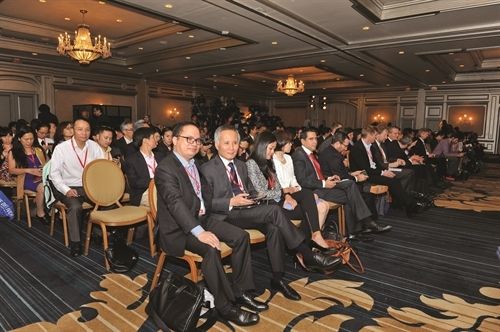An overview of the TTP agreement
Dr. Matthias Dühn, LL.M
Attorney-at Law/Foreign Registered Lawyer in Vietnam
After five years of implementation, the Trans-Pacific Partnership (TPP) agreement was finally signed in Atlanta, USA, on October 5 by 12 participating Pacific Rim nations. The current TTP members include Canada, the United States, Mexico, Peru, Chile, Japan, Vietnam, Malaysia, Brunei, Singapore, Australia and New Zealand. The TPP agreement will liberalize trade in these 12 countries, representing roghly 40 percent of the world economy. On a broader level, the TTP agreement aims at deepening economic ties between these nations, slashing tariffs and increasing overall trade. Member countries are also hoping to foster a closer relationship on economic policies and regulations.
This article presents an overview of the TTP agreement’s contents, its benefits for Vietnam and the process of implementation.
The TPP agreement and its benefits for Vietnam
The common principle of the TPP agreement is that all of the TPP member’s import tariffs will be cut to zero. While most tariffs will be removed immediately, tariffs on some sensitive products such as agricultural products will be eliminated over longer timeframes. Most goods and services seem to be involved, but not all tariffs are going to be removed and some will take longer than others. Which exact services and countries fall into which category will be contained in an Annex to the TPP agreement, but the full text of the agreement’s 30 chapters has not yet been published so this is really hard to tell. However, some Vietnam-relevant points addressed in the TPP agreement can be summarized as follows:
First, the TPP member states have committed to either eliminate or reduce tariffs and other restrictive policies for agricultural products and industrial goods. Vietnam’s agricultural products will have more opportunities to be exported to other TPP members. At the same time, however, standards on food security will be enhanced and more competition from TPP members encouraged. Particularly for textiles and garments, all tariffs will be removed, thus certainly bringing a boost to Vietnam’s textile sector.
.

.
Second, the TPP members have also agreed to liberalize the trade in services, which represents an area of utmost priority for Vietnam’s future (even as for now the trade in services only stands at roughly 10 percent of the volume as compared to the trade in goods).
Third, the TPP agreement contains a chapter on anti-corruption and good governance. This is good news as lack of good governance and bribery are still widespread in Vietnam and have in the past deterred more foreign direct investment (FDI) coming to the country. The TPP standards will likely help Vietnam speed up its ongoing fight against corruption and the better and consistent application and enforcement of existing anti-corruption legislation.
Fourth, the TPP members have committed to implement better, i.e., transparent, predictable and non-discriminatory, government procurement rules. Amongst other things, tender information must be published timely, so as to allow bidders to carefully prepare their bids while keeping the highest level of transparency and confidentiality. Bids must further be based and evaluated solely on fair and objective principles. Contracts shall be awarded only based on certain objective criteria that must be made transparent in the tender documentation. In practice, this means that Vietnam will have to overhaul government procurement rules and how they are applied in practice. This is likely to accelerate Vietnam’s shifting away from inferior-cheap price only bids to high-quality and high-capacity bids.
Fifth, the TPP members have emphasized the non-discrimination of enterprises as a core principle, which means that state enterprises cannot be privileged and must follow the same rules and procedures as all other companies. This may hopefully result in Vietnam further pushing the equitization of its state enterprises, so as to meet the TPP standards.
Other important issues addressed in the TPP agreement include amongst others: removing barriers to foreign investment, streamlining customs procedures, creating an international investor-state dispute settlement system, addressing technical barriers to trade, trade remedies, intellectual property protection, and labor rules.
When will the TPP agreement come into force?
As an international trade pact, the TPP agreement is now pending approval from the legislative bodies of its members, before it can take effect. In Vietnam, the process can take 18 to 24 months, considering that the National Assembly is expected to begin considering the TPP agreement only in mid-2016. However, once ratified by each TPP member country’s congress or parliament, the TPP agreement will become the most significant trade agreement in history: As many as 18,000 tariffs are expected to be eliminated! Even though the TPP agreement’s actual and full implementation is still some time away, it’s encouraging to know that positive change is on its way.
.

.
Conclusion
The TPP agreement is the largest trade agreement in history and will create a free trade area making up 40 percent of the global economy and 30 percent of global trade. The TPP agreement is estimated to increase Vietnam’s GDP growth to at least 8-10 percent until 2030. Eventually, the TPP agreement could create a new single market like that in the European Union. Other ASEAN countries that are not part of the TPP agreement, such as Cambodia, Indonesia, Myanmar and Thailand, are likely to lose out in the battle to attract international manufacturers. Therefore, the TPP agreement couldn’t have come at a better time for Vietnam!
About the author: Matthias is a German Attorney-at-Law (“Rechtsanwalt”) since 2001, and admitted as a ‘Foreign Registered Lawyer’ in Vietnam since 2007. He focuses his practice on corporate and commercial law, foreign direct investment (FDI), complex contract and labor negotiations, corporate governance, risk assessment and compliance. In 2007, Matthias has successfully set-up the German law firm Rödl & Partner in Vietnam, before working as the regional Compliance Officer Asia/Pacific for MAN Truck & Bus Ltd. in Bangkok/Thailand from 2011-2013. In 2014, he set-up Viet Diligence Legal Ltd., and now provides – with his Vietnamese partners – a full range of legal and tax services in Vietnam.
Source: vietnamlawmagazine.vn
